Politics

I am an evangelical.
But what does that label even mean anymore?
A few days ago I was sitting around chatting with a few new friends at my Bible college. One of them was a young Canadian and another was a middle-aged former U.S. soldier. We ended up on the topic of politics and how many companies and businesses in the United States give millions to political and social causes and somehow we ended up talking about McDonalds.
My USAF friend made the statement: “McDonalds is terrible because it gives millions to causes and organizations that you [speaking of me] directly oppose: LGBTQ rights campaigns, Planned Parenthood, etc.” I was taken aback because my new friend simply assumed that because everyone in this conversation was an evangelical meant that we all held a certain set of political ideals and social standards. For him — for millions of others — evangelical meant something far more than a theological persuasion. In the midst of this awkward moment, I decided to reveal my identity as a politically progressive/liberal evangelical, which automatically caused an immense amount of tension to arise in our conversation. How could I, a Bible-believing evangelical, possibly support the LGBTQ community’s right to marry? How could I think that Planned Parenthood was doing any good and that President Obama’s plan to rapidly decrease the numbers of abortions in the United States was progress in any way? Let’s just say that the conversation ended on a pretty tense note.
This encounter really caused me to re-reflect on the magnitude that the term evangelical has been hijacked by political and social agendas over the past decade and how a new generation of evangelicals is emerging that does not at all identify with any of the social and political baggage that has come to represent evangelical Christianity. Which brings me back to my original question: What does the label evangelical even mean anymore?
I can tell you this — it doesn’t mean that I am a Republican. It doesn’t mean that I am a Democrat. It doesn’t mean that I am pro- or anti-anything.

Christian conservatives who think Satan is using communism and Islam to bring down America can add a new “adversary” to the list: the Emergent Church movement.
A portion of the upcoming Values Voter Summit in Washington will stray from its usual focus on politics and consider the Emergent Church as one of three “channels the adversary is using to bring America down.” Art Ally, president of The Timothy Plan, a Florida-based mutual fund company devoted to “biblically responsible investing,” will lead the breakout session.
“Why would Satan use Communism? It’s a godless form of government,” said Ally. “Why would Satan use Islam? Same reason. It’s not a religion. It’s a movement to dominate the world under the guise of religion. The Emergent Church plays right into that by weakening further our church community.”

Skepticism is a good and healthy thing, I told every audience. Be skeptical and ask the hard, tough questions about our institutions — especially Washington and Wall Street. But cynicism is a spiritually dangerous thing because it is a buffer against personal commitment. Becoming so cynical that we don’t believe any change is possible allows us to step back, protect ourselves, grab for more security, and avoid taking any risks. If things can’t change, why should I be the one to show courage, take chances, and make strong personal commitments? I see people asking that question all the time.
But personal commitment is all that has ever changed the world, transformed human lives, and altered history. And if our cynicism prevents us from making courageous and committed personal choices and decisions, the hope for change will fade. Along the way, I got to thinking how the powers that be are the ones causing us to be so cynical. Maybe that is part of their plan — to actually cause and create more cynicism in order to prevent the kind of personal commitments that would threaten them with change.
And this is where faith comes in.
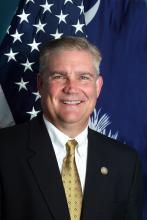
The vast majority of evangelicals have voted with the GOP in recent elections. In fact, despite some qualms about his Mormon faith, 79 percent of evangelicals voted for Republican nominee Mitt Romney in 2012, the same percentage that voted for President George W. Bush in 2004.
So why would the party hire its former South Carolina chairman to lead engagement to a group that for a generation or more has been the reliable anchor of the party faithful? Here are four reasons.

In response to my last article, “ 10 Things You Can't Do While Following Jesus,” I was accused multiple times of being political. All I was trying to do was follow Jesus. So, I thought it'd be interesting (and generate tons more hate mail) to show what a list would actually look like if I were being political intentionally. Like the first list, this is not a complete list, but it's a pretty good place to start.
There will be those who comment and send me messages berating me for “making Jesus political.” It's OK. Fire away. Jesus didn't worry much about stepping on political toes, and the Bible insists that governments be just toward the least of these (the books of the prophets alone make this point very clear). Frequently, people who are the most vocal about not making Jesus political are the same people who want prayer in school and laws based on their own religious perspectives. By a happy little circumstance that brings us to my list:
Bishops in the Church of England, who had strenuously opposed a bid to allow same-sex marriage, signaled that they won’t try to derail the bill after an overwhelming vote of support in the House of Lords.
Church of England spokesman Steve Jenkins said that in the same way the church will eventually allow women bishops, England will eventually allow same-sex marriage.
“It doesn’t mean the Church of England is happy, but that’s where our government is going,” Jenkins said. “Now it’s about safeguarding people’s right to hold religious beliefs.”

On Memorial Day weekend, our family of four participated in six baseball games! Having just returned from a six-week book tour, it was such a refreshing change from discussing our nation’s politics, which is all the media wants to talk about and is more and more well, disgusting.
A sign outside our home’s front door says, “This family has been interrupted by the baseball season.” Both of our boys play, I coach, and my wife Joy Carroll is the Little League Baseball Commissioner — cool job for a Church of England priest!
On Saturday, we played in the Northwest Little League All Star game, which I got to coach with my son Jack on one of the teams. Our team came out on top, and Joy made 100 hotdogs for a celebration after the game. Our last victory cheer was “1, 2, 3, HOTDOGS!” The picture here shows the enthusiasm of the 9- and 10-year-olds I get to coach every single week. It’s what keeps me grounded in real life — amid the politics of this dysfunctional capital city — and it’s what gives me joy. Coaching baseball has also kept me deeply connected to my two sons, as I write about in my new book.
We had just helped save an immigration reform bill in the Senate Judiciary Committee — advocating for 11 million undocumented people who Jesus calls the “strangers” against the special interest politics of both left and right — when I entered the field for our Little League Tigers game on Friday night. It was just what I needed.
Here is a great baseball story that explains why I love Little League Baseball.
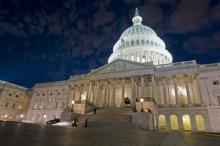
What I have heard after visiting 18 cities in six weeks is that people around the country believe that nothing can happen in Washington, D.C. They are basically right. So I am very grateful today to report the one exception.
On Tuesday, the Senate Judiciary Committee approved a new comprehensive immigration reform bill with a bipartisan vote. Did you hear that: “bipartisan.” Amid heartbreaking news of the destruction, grief, and heroism we have seen in Moore, Okla., from one of the worst tornados in American history, millions of Americans found a reason to be hopeful.
This historic immigration bill now goes to the full Senate, where it has a real chance of passing and changing the lives of 11 million aspiring Americans. These are the “strangers” talked about throughout the Bible, and about whom Jesus said, in Matthew 25: how we treat them is how we treat him. That realization has caused a literal biblical conversion in the evangelical Christian community, which with the help of law enforcement officials and business leaders has done the impossible — changed Washington, D.C.
Self-interests, special interests, and even conflicting principles all put this life-changing proposal in grave danger. But in a town defined by gridlock, a group of eight senators crafted a bipartisan proposal that passed with only minor change. The bill reflects agreements reached by the AFL-CIO and Chamber of Commerce; imagine that. It isn’t perfect and no single legislator got everything she or he wanted, but the key elements that many of us have been fighting for are intact. That really is a triumph of the common good.
Now, I am asking you to write your senators and ask them to support this bill on the Senate floor.

WHEN U.S. POET Laureate Natasha Trethewey visited my day job at historically black Kentucky State University, she cleared up a couple of things about the honors and duties of her position. First she noted that, unlike her British counterpart, she does not receive a free cask of wine as part of her payment. But that’s okay, she says, because, unlike laureates of old, she also does not have to compose made-to-order poems to the glory of The State. The State should also be relieved at that, because Trethewey’s poetry, while obsessed with history and written in a plain-spoken and accessible style, also habitually exposes profoundly unsettling truths about us and our past, especially regarding race.
From her first book, Domestic Work, focused on the lives of working-class African Americans in the South, to her most recent, Thrall, which deals with images of interracial relationships from the 17th century to the present, Trethewey has focused her keen verbal gifts on the most sensitive nerve in American life. Trethewey comes by these obsessions naturally. She is the daughter of a white man, Eric Trethewey, himself a poet of some renown, and a black woman, Gwendolyn Turnbough, who was murdered when Trethewey was in college. Trethewey was born and grew up as a mixed-race child on the Mississippi Gulf Coast in the late 1960s and ’70s.

As Americans, we live in a culture that is hyper-individuated, fragmented, and dehumanizing as it pushes a mantra of success based on material accumulation and power. Being in community with others is the countercultural answer to this. Doing so with others unlike ourselves is an important part of this. At the end of the day, above the polarization and partisanship, there is much we can do to promote the common good together. As Maddie put it at a meeting that brought Christians of opposing social interpretations together, "We may never agree on some issues, but that is not why we're here; we're good people, you're good people, let's do good together."
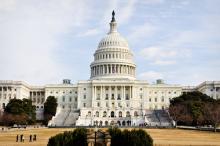
While immigration and gun violence issues are capturing most of the week's headlines, the budget battles have re-emerged in Washington, D.C. Last month House Budget Chairman Paul Ryan (R-Wis.) and Senate Budget Chairwoman Patty Murray (D-Wash.) released competing budget proposals. And today, President Barack Obama released his own plan, which aims to reduce the deficit through a combination of spending cuts and revenue increases.
As The Washington Post's Ezra Klein and Evan Soltas note:
Today’s budget is the White House’s effort to reach the bedrock of the fiscal debate. Half of its purpose is showing what they’re willing to do. They want a budget compromise, and this budget proves it. There are now liberals protesting on the White House lawn. But the other half is revealing what the GOP is — or, more to the point, isn’t — willing to do. Republicans don’t want a budget compromise, and this budget is likely to prove that, too.
As the White House sees it, there are two possible outcomes to this budget. One is that it actually leads to a grand bargain, either now or in a couple of months. Another is that it proves to the press and the public that Republican intransigence is what’s standing in the way of a grand bargain.
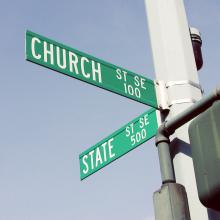
WILMINGTON, N.C. — A resolution to allow North Carolina to defy the Constitution and establish a state-sanctioned religion may be dead in the state capitol, but minority faiths say there’s more than enough reason to remain nervous.
Some worry about the implications the bill has for North Carolina, a majority Protestant state with growing Hindu, Muslim, and Buddhist populations.
Manzoor Cheema, a Raleigh resident and board member of the Triangle Interfaith Alliance, said he believes the resolution should be a wake-up call.
“I think this is a very disturbing development; very bad for our state. In my opinion, as a Muslim, a minority community member and immigrant from Pakistan, I believe that separation of church and state is fundamental and grants us many freedoms,” he said.
“But it’s a blessing in disguise to mobilize the interfaith community in North Carolina.”
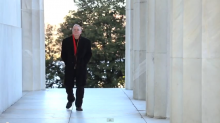
I recently went back to the Lincoln Memorial to tell the story of how and why I wrote my new book, On God’s Side: What Religion Forgets and Politics Hasn’t Learned About Serving the Common Good. And I reflected on my favorite Lincoln quote, displayed on the book’s cover:
“My concern is not whether God is on our side: my greatest concern is to be on God’s side.”
I invite you to watch this short video, and to engage in the discussion as we move forward toward our common good. Blessings.
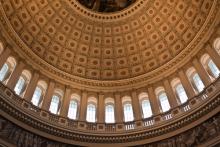
This week a large number of Americans are celebrating Holy Week, leading up to Easter Sunday. Churches will be packed with both the regulars as well as the once- or twice-a-year worshippers for the "Super Bowl of Sundays" to celebrate Christ’s victory over death and sin and his glorious resurrection.
In the midst of an exasperating and polarized political debate around the U.S. budget, our national and political leaders can learn valuable lessons from Holy Week. Whatever your faith background may be, we could all benefit from a greater commitment to the humility, shared sacrifice, and hope that Holy Week embodies. An extra dose of humility, sacrifice, and, ultimately, hope represent the balm that could bridge many of our ideological differences and resolve the current political impasse around the budget that has paralyzed our political system and divided the nation.

A revealing thing happens when you remove yourself from the daily drum of politics and become a mere observer. I did just that last year, during some of the most divisive moments of the presidential election. Sitting back and watching the deluge of insults and accusations that feeds our political system, I witnessed the worst of us as a nation. And I came to the conclusion that it’s time to reframe our priorities.
When did we trade the idea of public servants for the false idols of power and privilege? When did we trade governing for campaigning? And when did we trade valuing those with the best ideas for rewarding those with the most money?
We’ve lost something as a nation when we can no longer look at one another as people, as Americans, and — for people of faith — as brothers and sisters. Differing opinions have become worst enemies and political parties have devolved into nothing more than petty games of blame.
During a three-month sabbatical, observing this mess we’ve gotten ourselves into, I prayed, meditated, read — and then I put pen to paper. The resulting book gets to the root of what I believe is the answer to our current state of unrest. It is not about right and left — or merely about partisan politics — but rather about the quality of our life together. It's about moving beyond the political ideologies that have both polarized and paralyzed us, by regaining a moral compass for both our public and personal lives — by reclaiming an ancient yet urgently timely idea: the common good.
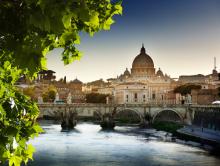
If you want a crash course on how papal politics really works, look no further than the saga of Scottish Cardinal Keith O’Brien.
On Friday, Britain’s most senior Catholic cleric grabbed headlines by telling the BBC that priestly celibacy was “not of divine origin” and that he’d be “happy” if priests had the option to marry.
On Saturday, O’Brien was back in the news, this time after four men reportedly accused him of “inappropriate acts” dating back to the 1980s.
By Monday, O’Brien had resigned as archbishop of Saint Andrews and Edinburgh and announced he would skip the conclave.
From champion of married priests to disgraced churchman within 72 hours, O’Brien’s trajectory is stunning but also emblematic of the frenetic and fever-pitched campaigning that occurs during the tiny window between a pope’s death or resignation and the election of his successor.
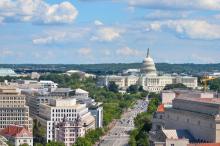
I know I am not the only one who is sick and tired of Washington’s manufactured crises around budget and deficit debates. Brinksmanship has replaced statesmanship in trying to find a sound path to fiscal responsibility. It is time to make the right moral choices that will defend the most vulnerable and pursue an opportunity agenda to reduce the highest poverty rate in 50 years.
Ideological debates over the role of government are the real battle in the nation’s capital — more than the debt crisis. Political calculations about the next election are more important to many of our political leaders than the common good of the country.
It’s just time to move on from the partisan politics that has polarized and paralyzed us for so long — by committing ourselves to moral issues that could and should bring us together. The first will be comprehensive immigration reform, which will change the lives of 12 million people in this country, lift many out of poverty, and help the economy at the same time. This is a clear example of how the faith community has changed, and now come together to become a political game changer in Washington, D.C., at both ends of Pennsylvania Avenue on both sides of the aisle.
And it’s time to make another moral commitment in the midst of our growing economic recovery — to include poor families and change poverty into opportunity. Fighting poverty must not be a partisan issue. When we look at both the causes and the solutions, this battle should bring both liberals and conservatives together. Overcoming poverty, by creating opportunity, happens because of three very basic things that most of us can agree on: family, education, and work. All three are crucial and necessary in moving people out of poverty and into opportunity.
Let’s break it down.

AUSTIN, Texas — After a walk around the Texas Statehouse, it became clear they tell a different history here.
Inside the Capitol is a large painting of a onetime Tennessee congressman named David Crockett, who failed in a re-election bid and stormed out west to join the revolution in what was then called Tejas. He arrived in 1836 and died four weeks later at the Alamo in San Antonio.
A plaque beneath the oversized painting suggests Crockett was a laborer who became larger than life when he got to Texas. A more balanced account suggests Crockett had been building his legend for many years, with exotic garb, a self-published autobiography, and fiery speeches against President Andrew Jackson. He yearned to star in Washington, and when that failed, he went west, landing at the Alamo just in time to die there.
An ambitious state needs its mythology.
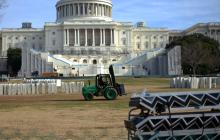
It is an odd juxtaposition, December 21, 2012 and January 21, 2013. The former date representing the “so-called” Mayan apocalypse where the usual suspects prepared for the end of the world – many of whom were Christians awaiting the second coming of Christ – and the latter date, which is the day President Barack Obama will be inaugurated for his second term.
In my estimation, this odd 21st-century connection reflects the event known as the baptism of Jesus as described in Luke 3:15-17 and 21-22. Initially we see that there is an expectation elicited by the preaching prowess of John the Baptist. The unnamed “men” wonder in their hearts if “whether perhaps he was the Christ” (Luke 3:15 RSV). John, then goes on to describe what he understands to be Christ-like qualities when he proclaims, “[One] who is mightier than I is coming, the thong of whose sandals I am unworthy to untie” (Luke 3:16).

“You’re a Christian? But you’re so nice!”
I’ll never forget these words, spoken to me by a friend of mine from my college’s theatre program. He was one of my more eccentric friends, more blunt than most, and he was also very openly gay. His exclamation of surprise may be the instance that I remember the most, but he certainly wasn’t the only person during my college years to express their surprise at the thought of Christians living by principles of love rather than intolerance, or at the very least, indifference.